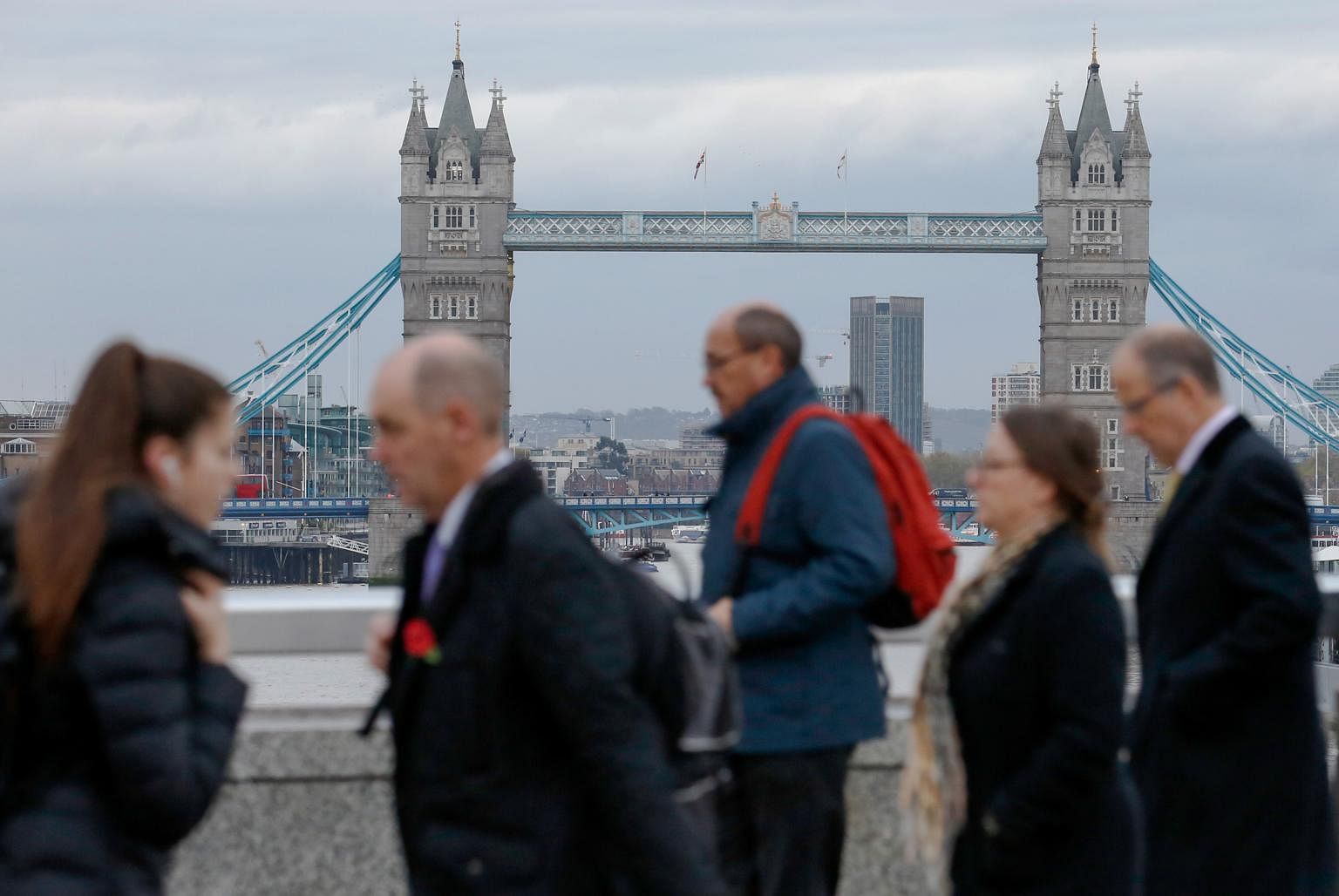Sometimes a nation does well to see itself through the eyes of others. Never has that been truer of Britain. To old friends, Great Britain, as they used to call it, is in the clasp of an inexplicable fever. Renowned for solidity and pragmatism, the Brits have fallen to rage and resentment. Carefully judged self-interest has surrendered to dangerous dogmatism.
I have spent two months or so living in Berlin. Every conversation starts with the same question: "What's happened?" The Germans are not about to rescue Britain from the Brexit mess, but they are genuinely baffled, and not unconcerned, as to how things have reached this sorry pass. Ministerial sackings and lurid tales of sexual harassment at Westminster compound the confusion.
My answer is that government and Parliament have lost control. A majority of MPs think Brexit is a mistake but feel obliged to pursue it lest they be accused of defying what the tabloids declare to be "the will of the people". This is what happens when the subtle checks and balances of representative democracy are subordinated to the crude majoritarianism of referendums. Germans, ever mindful of what happened in the 1930s, understand this.
Brexit is the biggest upheaval since 1945 in Britain's political and economic life - an enterprise of enormous complexity and consequence. It is all-consuming. Yet the project is being steered, if that is the right word, by an administration drained of political authority by a misjudged election and by a Conservative Party at war with itself.
Mrs Theresa May's premiership is shaped above all by her weakness. She is openly defied by her own ministers and held hostage to the mendacity and ambition of Mr Boris Johnson, the Foreign Secretary. The Tories are as divided as ever about Britain's relationship with its continent. Everyone backs Brexit, or so they pretend. They cannot agree on what it means.
You could say that the party has been here before. During the 19th century, it was broken by the Corn Laws, and in the early 20th, by an argument about imperial trading preferences. This time, though, Britain's travails run deeper than Tory infighting. The opposition Labour Party has chosen this moment to turn for its leader to the far distant fringes of left-wing politics.

Steeped in anti-Americanism and an apologist for Russia's President Vladimir Putin, Mr Jeremy Corbyn's outlook was fixed during the 1970s. Tory Brexiters see the EU as an affront to Britain's imperial past. Mr Corbyn hails from a small far-left sect that views Brussels as a capitalist plot. Political opportunism prompts him to disrupt the government's Brexit negotiations; his real goal is to force an election and declare socialism in one country.
What used to be called the British establishment looks on with awful bewilderment. Scarcely a single senior official in Whitehall thinks Brexit a good idea. The nation's diplomats think it will diminish the country's influence abroad. The Treasury's assessment is framed in terms of degrees of damage. Bad, very bad or catastrophic? The Bank of England agrees.
None of this much troubles the English nationalists. Mr Michael Gove, a leading Cabinet Brexiter, publicly disdains the views of "experts". Central bank governor Mark Carney is cast as an "enemy" of Brexit. Mr Johnson promotes the fantasy of a second Elizabethan age.
Good public servants that they are, the officials do their best to navigate the government's frequent swerves and to retain a few shreds of credibility with their EU interlocutors. This admirable loyalty recalls that of the British cavalry during the Crimean War who obeyed the order to ride directly into the Russian guns. As Tennyson observed: "Theirs not to make reply,/ Theirs not to reason why".
Where we go from here can only be guessed. Mrs May could be toppled tomorrow. Brexit deadlock could be a catalyst for another election. Mr Corbyn might win. There is a majority in Parliament for what could be called soft Brexit, but it is locked up within the two main parties. There is no majority for any outcome amenable to Mr Johnson and Mr Gove.
The EU27 are not about to offer Britain an agreement tailored to the competing factions in the Conservative Party. Mrs May's talk of a bespoke arrangement to preserve the advantages of the single market while shedding the responsibilities is greeted elsewhere with unalloyed scorn.
Aside from that of crashing out, the choice is between a trade deal such as the one between the EU and Canada, or an association akin to that enjoyed by Norway. The first would carry huge economic cost; the second would draw the wrath of the Tory zealots. Both would require a period of transition reaching well beyond the two years imagined by Mrs May.
Eighteen months ago, I wrote that Britain's politics were starting to imitate those of Greece. At the time, I might have admitted a certain hyperbole. Now I think the parallel understates the British condition. The last hope is that there is a hidden irony in all this: that the political chaos wrought by the referendum is the only thing that could stop Brexit happening.
FINANCIAL TIMES
• The writer is a Richard von Weizsäcker fellow of the Robert Bosch Academy in Berlin.
